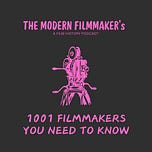1001 Filmmakers You Need to Know
Jim Jarmusch
(January 22, 1953 – Present)
Role: Director, Screenwriter, Producer
Jim Jarmusch was born in Akron, Ohio, and grew up in a family with a strong artistic presence; his mother introduced him to movies early on.
He studied literature at Columbia University before transferring to NYU’s Tisch School of the Arts, where he fell in love with filmmaking.
As a student, he studied European and Japanese films, cultivating a unique aesthetic approach.
Jarmusch initially worked as a sound editor, honing skills that later influenced his cinematic style.
His independent spirit was evident from the beginning of his career.
Jarmusch’s Influences:
Jarmusch’s influences range from European art cinema directors like Jean-Luc Godard and Ozu to American counter-culture figures such as John Cassavetes.
He admired the minimalism of these filmmakers, as well as their offbeat, non-traditional narratives and experimental tones.
Music, especially punk rock, also heavily shaped his vision, as he incorporated the genre’s DIY ethos into his filmmaking.
These elements led Jarmusch to develop his own minimalist, often existential style.
His work reflects an interest in cultural outsiders, emphasizing dialogue and atmosphere over plot.
Jarmusch’s Early Career:
Jarmusch’s first film, Permanent Vacation (1980), was a low-budget project centered on a young drifter in New York.
Made while he was still in school, this debut established his contemplative and minimalist approach to storytelling.
The film, though not widely known, received positive attention on the festival circuit for its style and mood. Permanent Vacation set the stage for his next feature, further exploring themes of alienation and disconnection.
This film marked Jarmusch’s commitment to creating independent films with a strong auteur vision.
Jarmusch’s Breakout:
His mainstream breakout came with Stranger Than Paradise (1984), a black-and-white film that portrayed three aimless characters on a road trip across the Midwest.
The film’s humor, pace, and low-key atmosphere resonated with audiences, winning the Camera d’Or at the Cannes Film Festival and establishing him as a leading figure in American independent cinema.
Stranger Than Paradise became a cult classic, representing the distinctively understated, deadpan style that would define Jarmusch’s career.
This success brought Jarmusch international recognition and opened doors for future projects.
Jarmusch is celebrated for his distinctive tone, blending dry humor, minimalism, and an observational approach to storytelling.
His films often center on cultural outsiders or unconventional characters, exploring themes of alienation, existentialism, and the human condition.
Known for working with an ensemble cast of actors and musicians, he infuses his films with a blend of humor, music, and philosophical depth.
His slow pacing and emphasis on mood over action have influenced countless independent filmmakers.
Jarmusch’s work continues to stand out for its unique aesthetic and subtle thematic complexity.
Currently, Jarmusch remains active in the film industry, directing and producing both feature films and shorts.
He often collaborates with his usual ensemble of actors and musicians, including Bill Murray, Tilda Swinton, and Tom Waits.
Recently, his work has continued to explore genre-blending narratives, including forays into horror and sci-fi.
His creative work extends to music as well, where he collaborates with artists across genres.
Jarmusch continues to be a respected figure in independent cinema, inspiring a new generation of filmmakers.
Notable Films:
Stranger Than Paradise (1984)
Dead Man (1995)
Ghost Dog: The Way of the Samurai (1999)
Only Lovers Left Alive (2013)
Paterson (2016)
Note: The voices above are AI and trained on excerpts from 1001 Filmmakers You Need to Know and other publically available material.
P.S. Catch up on the rest from TheModernFilmmaker.co:
👉 Buy: The Modern Filmmaker’s On Set Filmmaking Dictionary, today.
👉 Some Filmmakers to Know: Julia Ducournau & Kathryn Bigelow…
👉 Some Filmmaking Terms: Above-the-Line & Back to First Marks…
👉 Some Stories: So there I was… Absolutely Screwed…
👉 Some Thoughts: Cover Your Ass & Your Films with this…
👉 Some Resources: For Filmmakers…











Share this post